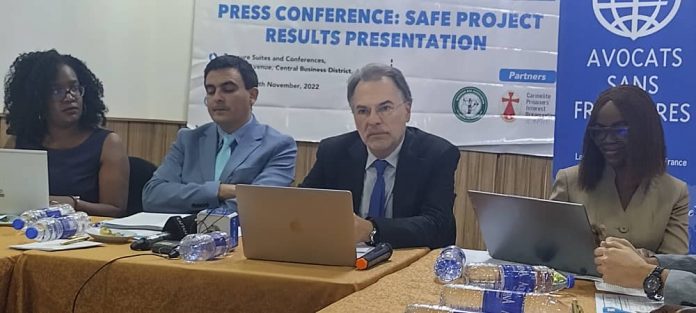A non-governmental organisation, under the auspices of TechSah Initiative, has trained no fewer than 60 community leaders and teachers on ways to combat sexual and gender based violence (SGBV) in schools and communities.
Founder and Project Director of the organisation, Chinedu Gbulie, said the workshop was a platform where community leaders were trained on what SGBV is all about..Gbulie said the programme was also organised to retrain the school teachers to discuss on ways to solve and end SGBV problem.
He said the trainees were drawn from communities in Bwari and Abuja Municipal Area Councils of FCT as pilot programme.
The News Agency of Nigeria (NAN) reports that the one-day policy dialogue and capacity building workshop for community leaders and key institutions to respond to SGBV/VAWG/HP was organised with the support of UNESCO.
Gbulie said last year, the NGO had engagement with over 160 teachers, under the programme which is funded by UNESCO, and it was discussed that SGBV did not only happen in schools but outside school environs.
“We have to now include the voices and opinions of community leaders. So this gave birth to this workshop,” he said.
He said it is easier to make policy but making policies that are implementable at the grassroots depend largely on the community leaders.
“So we started by going to these communities, we engage in advocacy visits, we discuss on what SGBV is and inform them of our ambition to end this in their communities.
“We, therefore, require their support to come out for this workshop and also contribute to forming a policies and actionable plans that we can implement to curb SGBV in FCT,” he said.
He said the project would cut across all the six area councils of the FCT.
Dr Laraba Okah, HOD, Special Services of FCT Secondary Education Board, said if the communities come to realise that SGBV needs attention by the education they received through awareness and sensitisation, we would begin to head in the right direction.
“Our office is open to reports that come in.
“We welcome even more reports. We go out there to investigate the situations,” she said.
Okah, who said the office was ready to partner with other organisations, said children who are victims of SGBV are taken to social development centre where they receive attention.
“Some of these young people have been able to write final exams and go to the universities. So we have been proactive and we will continue to do so.
The director, who said her office holds gender assembly every week, said no fewer than four gender-based reports are received in a month.
(NAN)

Call:
Sandra - 07069148333
Pauline - 08174374150
Scholastica - 09060678434













